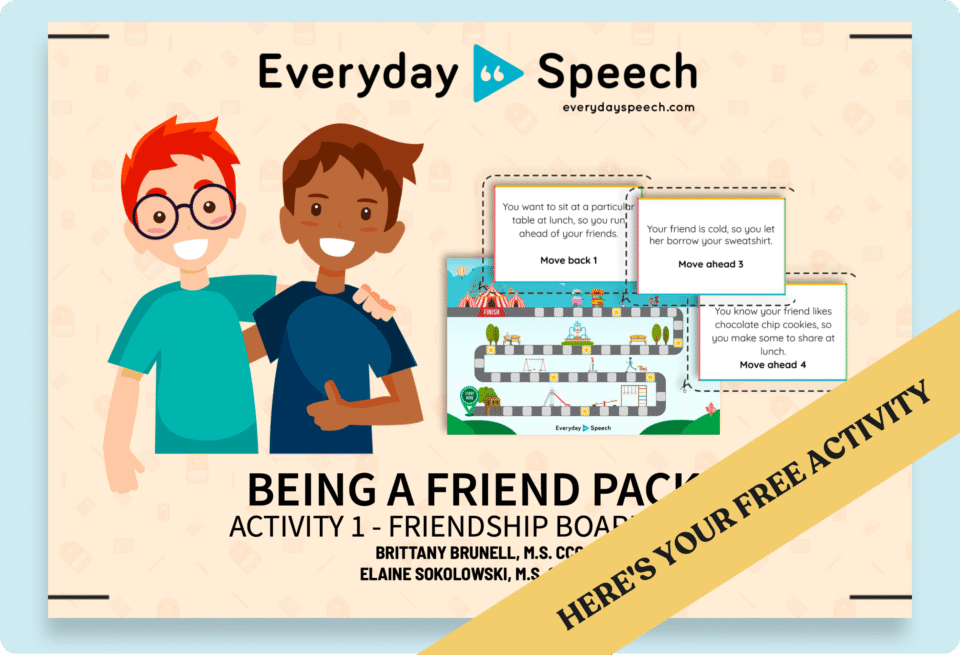Building Friendships: Strategies for Special Education Students
Get free social skills materials
No-prep lessons on self-regulation, emotional recognition, conversation skills, and more.
Sign up hereIntroduction
Friendship is a fundamental aspect of life, providing support, trust, and shared experiences. For students in special education, building friendships can be particularly beneficial for their overall well-being and social-emotional growth. This blog post will discuss the concept of friendship and provide educators with an easy, no-prep activity to help students develop the necessary skills for forming healthy, lasting friendships. We will also explore related skills and provide resources for further learning.
No-Prep Activity: Friendship Interviews
This simple activity requires no preparation or materials and can be easily adapted to any classroom setting. The goal is to help students practice getting to know one another by asking and answering questions about themselves and their interests.
- Pair students up, ensuring that everyone has a partner. If you have an odd number of students, consider joining a pair or forming a group of three.
- Instruct students to take turns asking each other questions about their hobbies, interests, and families. Encourage them to keep the conversation balanced, with each person sharing and listening equally.
- After a designated amount of time (e.g., 5-10 minutes), have students switch partners and repeat the process. This will give them the opportunity to practice their conversation skills with different individuals.
- Once the activity is complete, bring the class together for a group discussion on what they learned about their peers and how they felt during the exercise.
This activity helps students practice essential communication skills while fostering a sense of camaraderie and understanding among classmates.
Discussion Questions
- What are some qualities that you look for in a good friend? Why are these qualities important to you?
- How can we ensure that our friendships are balanced and equal, with both people contributing to the relationship? What are some examples of this in action?
- Why is it important not to overshare personal information too soon in a friendship? How can we determine the appropriate level of sharing for different relationships?
- What are some strategies for maintaining friendships outside of school? How can we make the effort to stay connected with our friends even when we are not in the same physical space?
- How can we be supportive and caring friends, even when we may not fully understand or share another person’s experiences or feelings?
Related Skills
In addition to the skills discussed above, there are several other competencies that contribute to the development of strong, healthy friendships. These include:
- Active listening: Paying attention to what the other person is saying, asking clarifying questions, and providing feedback to demonstrate understanding.
- Empathy: The ability to understand and share the feelings of others, putting oneself in their shoes and offering support when needed.
- Conflict resolution: Addressing disagreements or misunderstandings in a respectful and constructive manner, working together to find a solution that benefits both parties.
- Adaptability: Being open to new experiences and willing to adjust one’s behavior or expectations in response to changing circumstances or the needs of a friend.
Next Steps
Developing strong friendships is an essential part of social-emotional learning, and these skills can be nurtured through intentional practice and reflection. To further support your students in their journey towards building healthy, lasting relationships, consider exploring the free sample materials available at Everyday Speech. These resources can help you incorporate additional activities and discussions into your classroom, fostering a supportive and inclusive environment for all students.


